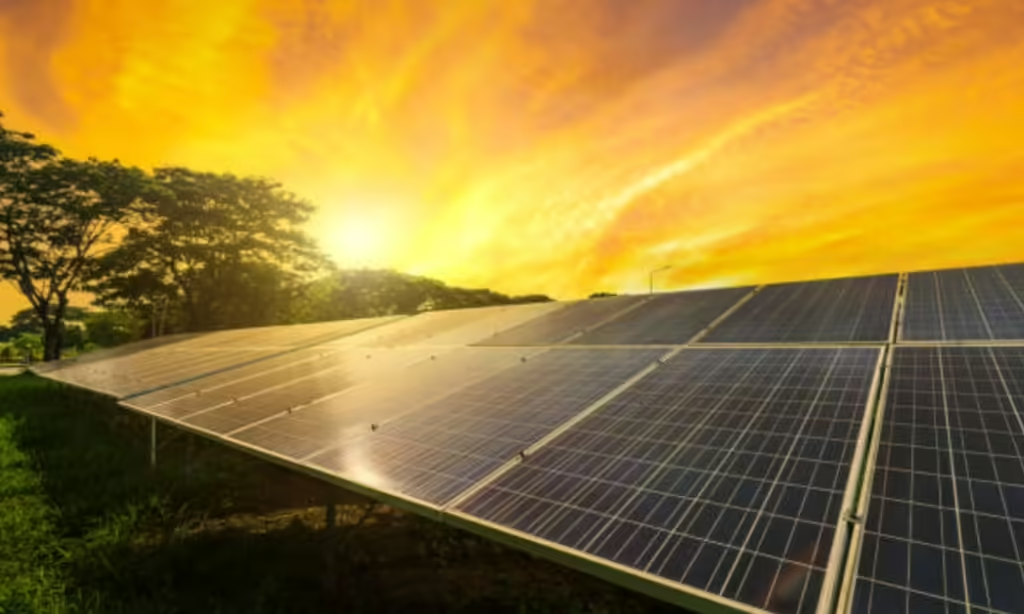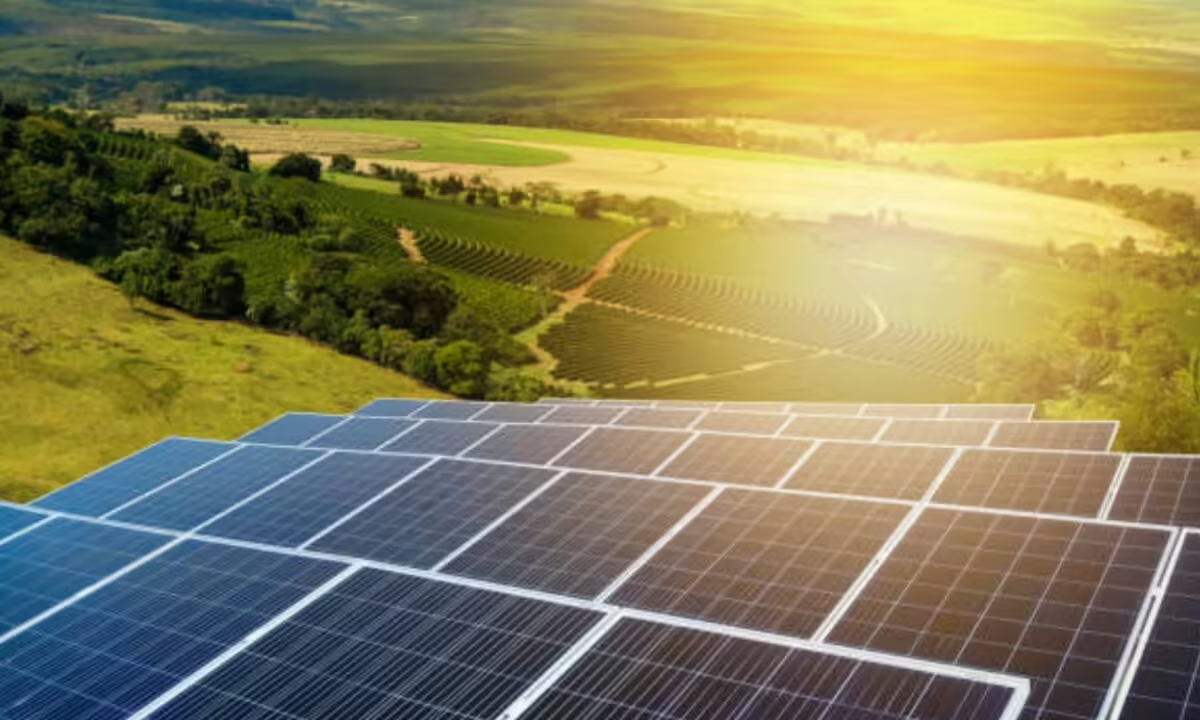Recently the farming sector has undergone considerable change mainly because of improvements in technology. An important technology is the integration of solar panels with solar energy. This work investigates the different ways in which solar energy improves farming while potentially changing agricultural practices for the better.
Technology advancements have led to a large change in the agricultural industry over the last few years. Using solar panels stands out among the top innovations in agriculture. Solar power enhances farmers’ ability to produce energy independently and supports the worldwide effort towards renewable resources.
Solar panels help improve the efficiency and accountability of agricultural techniques. Despite challenges like climate change the industry can benefit from adopting solar energy that delivers quick fixes and enduring gains ensuring food output. In this article, we will analyze the many benefits of solar energy to agriculture while emphasizing its ability to modernize farming and sustain environmental practices.
Impact of Solar Panels in Agricultural Operations

By converting sunlight into electricity through solar panels farmers achieve a renewable energy source to run numerous agricultural operations. In farming settings across the globe solar panels are available more frequently which enables financial reductions and enhances sustainability.
1. Cost Savings: Reducing Energy Expenses
The fastest advantage of solar panels in agriculture is lower energy costs. In farming practices, electricity is crucial for powering gadgets like irrigation systems and equipment for heating and cooling. Farmers generate their energy by using solar panels which reduces their need for grid power and helps lower monthly energy bills.
Choosing to invest initially to save on costs over time: Many farmers discover that the initial investment in solar panels is offset by the long-term financial benefits of lower energy bills. Eventually, the financial benefits from solar panels might be high enough to render them a realistic alternative for a range of agricultural facilities.
2. Environmental Sustainability
With escalating environmental issues today the farming sector struggles to pursue greener methods. Using solar panels directly contributes to this goal:
Reducing Carbon Footprint
The burning of solar energy results in no pollution. Farmers can greatly diminish their carbon footprint by using solar panels which aids in reducing climate change. It joins farming efforts with global sustainability targets and strengthens the field’s responsibilities to the environment.
Water Conservation
Solar irrigation tackles water waste and allows crops to achieve the correct moisture they require for robust growth and maturation. By using this technology farmers can regulate their water supplies more effectively and reduce waste.
3. Enhanced Crop Production
Incorporating solar power in farming approaches may increase the output of harvests. This can be achieved in several ways:
Systems that use solar energy for irrigation.
For more efficient irrigation methods farmers harness energy from solar panels. Accessible energy lets farmers control their irrigation at the right hours enhancing crop health and raising production.
In Controlled Environment Agriculture.
For lighting and cooling needs in greenhouses or vertical farms, solar energy can function as an essential source. This produces an ideal environment for growing produce of higher quality.
4. Developments within the field of agriculture.
Technological advancements in agriculture directly relate to what lies ahead of us.
Drones and Automated Systems
Numerous farming practices are starting to use drones to oversee crops and collect information. By harnessing solar energy these drones can monitor plant health and land use more efficiently.
Smart Farming Practices
By blending solar energy with clever technologies in farming like sensor-driven irrigation solutions we can enhance agricultural output and sustainability. The continuous operation of these systems depends on energy from solar panels.
5. Versatility of Solar Panels
Different arrangements of solar panels allow them to work well in diverse agricultural practices.
Rooftop Installations
Fixed solar panel installations work well with the large roofs on farm buildings commonly found. Additional land is not needed for this approach which empowers farmers to efficiently use their space while producing energy.
Ground-Mounted Solar Arrays
For bigger farms solar panels placed on the ground may go into nearby fields. Certain inventive methods use agrivoltaics that place crops beneath or beside solar panels to reap the advantages of direct sunlight and shade.
6. Implementing solar energy systems for job creation and economic advancements.
The uptake of solar energy in agriculture influences not just personal gains for farmers but also has wider economic consequences.
Support for Local Economies
When farmers use solar panels they strengthen the local economy. To maintain and set up solar systems often calls for local hands which generates jobs and boosts rural economic activity.
Attracting Investment
With agriculture steadily shifting towards sustainability it draws in hopeful financiers. Farms adopting solar power are typically regarded as innovative and courteous toward nature which attracts more investment interest.
7. Challenges to Overcome
Even with the significant benefits of solar energy for farming numerous difficulties must be overcome to foster its widespread use.
Initial Costs and Financing
The high costs of solar panel installation can act as a hurdle for a few farmers. Numerous practices and government support are on offer to allow farmers to pay these expenses.
Maintenance and Lifespan
Farmers should think about how frequently to maintain and how long solar panels last. To maintain efficiency. Farmers need to keep up with the panels regularly. Even though many solar panels have longevity. Farmers need to recognize their lasting expenses.
Conclusion: A Sustainable Path Forward
Utilizing solar technology in farming has substantial promise for improving sustainability and decreasing energy expenses while adding to the quality of output. As an important element in this change over to renewable energy solar panels offer farmers an efficient and sustainable power solution.
With the agricultural sector advancing quickly towards solar energy use opportunities for farmers and local communities will emerge. Solar energy will illuminate the promising future for farming. Through the use of solar panels on their farms farmers focus on both growing crops and fostering sustainability.
One of the leading companies in solar solutions and having a specialization in top-notch installations is Sun-AP Ecopower. With durable and efficient Livguard solar panels distributions can increase energy generation and cut down on spending.




